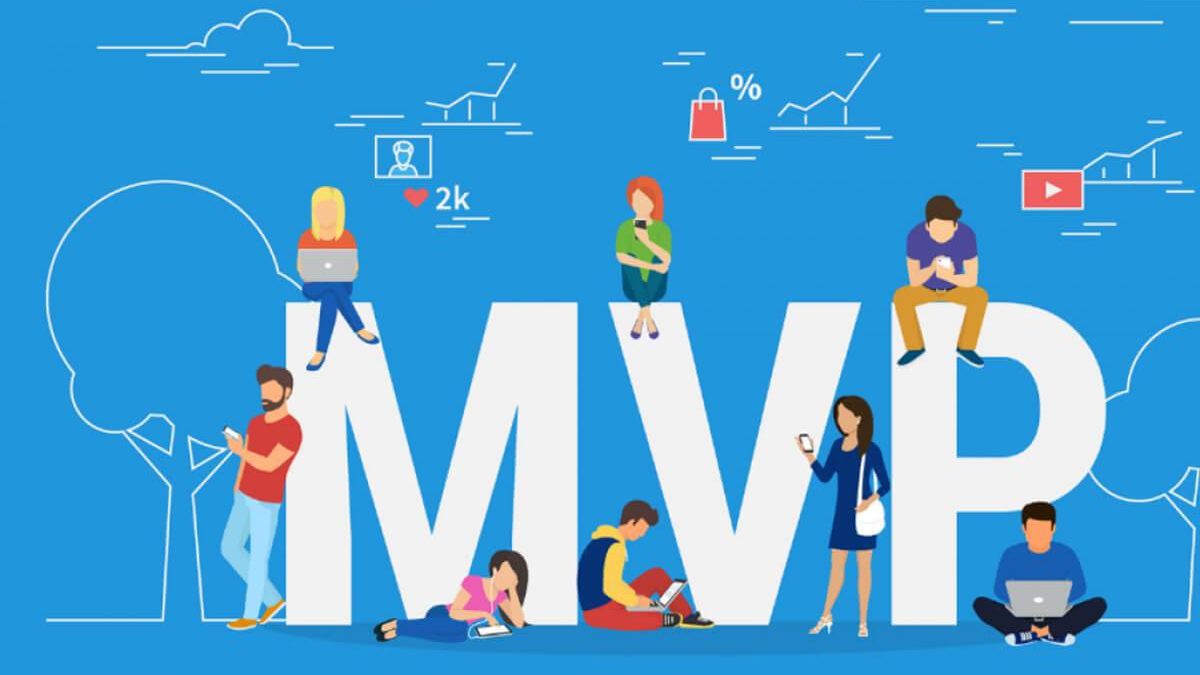MVP Development – MVP, or Minimum Viable Product, is a general term today that is aware even to those not involved in the product growth sphere. Using an MVP is a successful plan, as it gives every setup a chance to show itself to the community and win over spectators; it also helps cut expenditures and appeal to savers of the mission.
Conferring to statistics, up to 90% of startups collapse. About 10% quit throughout their first year, and up to 70% might not endure between their 2nd and 5th years. The maximum common causes for this are as follows:
- misunderstood or under-studied market needs (about 40%);
- ending budget (30%);
- the competitors who succeed more (20%);
- marketing, pricing, and plan matters (10%).
MVP development is a decent way for setups to avoid these dangers and fetch the project to fruition. Let’s figure out a Least Viable Product and how to shape an MVP that rocks.
Table of Contents
MVP Development – What is an MVP in Product Development?
The feeling of an MVP can be briefly defined as follows: This is a beta version of the product and some severe features that have established attractiveness to the end user.
The MVP development procedure is usually divided into several stages and can be talented using a variety of software development methodologies and techniques. The ultimate goal of developing a startup MVP is:
- Checking the validity of the product.
Note your strong point and weakness.
- Inspect the target audience’s reaction to the product.
Therefore, the main MVP features that will lead to product upgrades are lower costs, faster development and honest response to the consumer. An MVP can be a web page, landing page, custom web app, software, or even a physical model.
The likelihood of becoming an MVP is well-proven by giants like Spotify, Amazon, Airbnb, and many large and small startups that choose a good product idea and strategy.
MVP Development – Why Do You Require a Minimum Viable Product?
An MVP is an impressive tool at the start of the product development process. Creating a minimally viable product at the beginning of the development lifecycle will show you if your idea is as valuable as it sounds. What a safe direction it is to move forward as you try to find the right product to market.
As a general rule, a product, whether it’s an app, a tool, or a service, aims to meet consumers’ demands, solve some of their difficulties, or improve their daily lives with that product. MVP development is key to connecting with your audience through lower costs and faster product delivery.
MVP Development Benefits for Startups

The MVP benefits are closely related to its primary goals and features. We’ll discuss them in detail and state how MVP works for a project.
Benefits
- A complete study of your product based on purchaser knowledge. Customer response is priceless at this point, as it allows you to identify your product’s most and most minor appealing issues to make it eventually competitive.
- Possibility to attract investors. You will attract potential investors more likely to be complicated in a project that is already touchable slightly than a concept separate from the action.
- Testing stage. The reversibility is also a key factor determining a startup’s popularity of MVP development. I.e., it is much more relaxed to eliminate the functions that prove needless, fix the bugs or add new features in the QA testing of the product’s serviceability. This elasticity helps to implement updates smoothly and bring the release nearer.
- Cost-effectiveness. Most of the setups have been upset by inefficient financial planning. MVP development helps reduce costs, redistribute the funds if needed, and finally minimize the expenses of a final product.
How to Build an MVP
The MVP development procedure is deeply structured and broken down into clear milestones. Once you realize that you need to get the idea right, it’s time to move on to the practical part.
Each step should be clear with the relevant tasks assigned to team members. Let us now dwell on each stage in detail.
Do the Market Research
The first and significant step in developing an MVP is to analyze the market you want to enter. You should check the following data:
- The needs and demands of the communal and the customer’s behaviour.
- Main trends in the market.
- Price level and rate of return.
- Advertising and promotion.
You must go through a proof of concept (POC), decide how your product will stand out, and streamline the customer’s daily routine.
Narrow Down Your Key Audience Yes, that’s right: you should try to thin down your target group rather than cover most of the population. When creating an MVP, your desire to popularize the final product among 100% of humanity is entirely understandable. However, this is not a viable option and can ruin the entire project with inevitable financial losses and exhaust you as a project owner.
So focus mainly on people eager to buy and use your product because they need it. You will need to analyze your target audience in-depth at this point and the next step. It will help create MVPs during the promotional campaign.
Stick to the main points when identifying your potential customers:
- age, gender, place of residence, marital status and occupation;
- Solvency.
- their preferred vehicle types;
- What is the relationship between the problem your MVP is solving and the problem?
Finally, you will get a picture of the average consumer of the product…
Define Your Vision of the Project
This step is preparatory for specific procedures but affects the entire MVP development procedure. Is it highly recommended to hold a meeting or several meetings where all the deep values of the project will be discussed and the action plan created?
- Stay focused on costs and define a strategy to use reasonable amounts of time, effort and money.
- Please stick to the minimum critical functionality of the current product and direct most of your resources towards its development.
During the MVP development procedure, you will need customer feedback that will impact your final product. Prepare to receive it in advance. Here are some tips:
- Make sure all necessary communication channels are identified and prepared.
- Consider ways to move your newborn product forward. Landing pages, social networks and background advertising will help significantly with this. It’s worth considering holding a fundraiser on a platform like Kickstarter.
When discussing future minimum viable products, ensure that every response team member is involved in the discussion and shares their vision of the product, MVP features, and fund allocation. A comprehensive web development team can provide many expert opinions.
Assign Value
To meet consumer demands, your minimum viable product needs to solve some problems or take their experience to a new level. Determine the MVP’s solution to the mark audience and how it will connect with customers. For example, an audiobook operator might have the following outlets:
- Supports various file formats.
- Synchronization between different devices of the user.
- Timer, night mode settings etc.
Think about what is unique or pre-standard and focus on this complex of features (this will also help with product promotion).
Be sure to carefully document all valuable ideas so you can understand where the idea came from in the future.
Monitor Your Rivals
Although each product is unique, you should know that no product can be 100% without a match. It may be distinctive and distinguished, but competitors will want a piece of the cake permanently. Examine your future competitors and put the information together into a worksheet.
What do you need to recognize about your contestants? Be sure to check the following:
websites;
- social networking pages;
- Activities in the media.
- Professional fairs etc., their participation.
It will help you predict your product’s compatibility and avoid exaggerated expectations.
Describe Your MVP Features
Go through the practical steps before; here are a few key features that will become the core of your minimum viable product. Make a to-do list and work to prioritize features.
Developing a minimum viable product usually includes a limited number of necessary functions. Those are the backbone of MVP development for a startup. Define and complement them with additional features and adhere to the resulting framework.
Map Out User Flow
Please create a user roadmap: You need to predict user experiences and help them understand how to interact effectively with MVP. Please create a user flowchart that allows you to examine whether your interface is intuitive enough for customers, how they access necessary information or features, and whether your and your customer’s vision matches the product.
As for the design of the MVP, there is no necessity to polish it thoroughly. At this point, the UI/UX design should be simple and intuitive, in line with the core features of MVP. Use a click prototype to show users what the final product will look like.
MVP Development – Conclusion
Once all possible information has been gathered and analyzed, developing the MVP is time. Analyze the strengths and weaknesses of your minimum viable product and ways to reach and avoid them. Choose your management and development style and take the test. Pay attention to internal and external risks.

